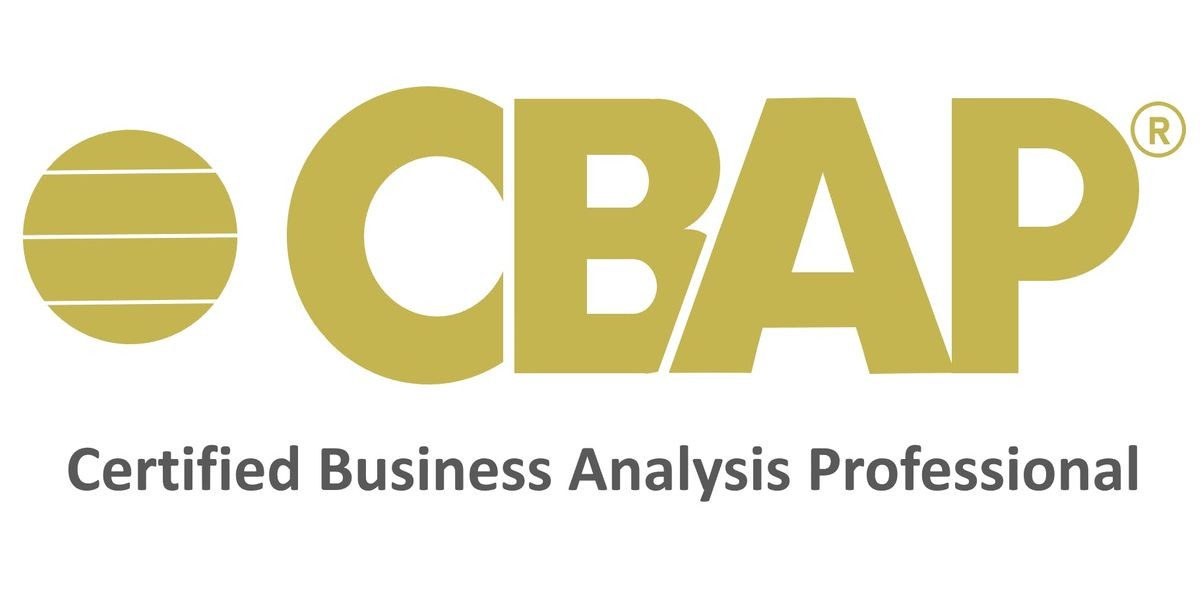Congratulations on your decision to pursue the Certified Business Analysis Professional (CBAP) certification! CBAP is one of the most respected and recognized certifications in the field of business analysis, validating your skills, knowledge, and commitment to excellence in this dynamic field. But deciding to pursue this certification is only the first step in a journey that requires careful planning, dedicated study, and strategic preparation. Here’s a step-by-step guide on what to do next to increase your chances of success.
1. Understand the CBAP Certification Requirements
The CBAP certification, awarded by the International Institute of Business Analysis (IIBA), is designed for seasoned business analysts with extensive experience in the field. To qualify, you’ll need to meet these requirements:
- Minimum of 7,500 hours of business analysis work experience over the past ten years, with at least 900 hours in four of the six Business Analysis Body of Knowledge (BABOK) Guide knowledge areas.
- Professional Development Hours: 35 hours of relevant professional development in the last four years.
- Two references from a career manager, client, or CBAP recipient.
- Agreement to the IIBA Code of Conduct and successful completion of the CBAP exam.
Meeting these prerequisites is essential before registering, so assess where you stand and complete any missing requirements.
2. Familiarize Yourself with the BABOK Guide
The CBAP Certification in Seattle WA is based on the BABOK Guide, which outlines the knowledge areas, tasks, techniques, and competencies required for effective business analysis. The current version (as of this writing) is BABOK Guide v3. Here’s how you can approach it:
- Read it cover to cover: As dense as it may seem, it’s critical to understand every section of the BABOK Guide. It’s advisable to allocate dedicated time each day to thoroughly go through it.
- Take notes: While reading, make notes on key concepts, especially the six knowledge areas: Business Analysis Planning and Monitoring, Elicitation and Collaboration, Requirements Life Cycle Management, Strategy Analysis, Requirements Analysis and Design Definition, and Solution Evaluation.
- Focus on techniques: The BABOK Guide includes 50+ techniques that CBAP-certified professionals are expected to know. Create a list and review them regularly, understanding when and how to apply each one.
3. Create a Study Plan
With CBAP’s broad and deep content, a well-organized study plan can help you stay on track. Here are some tips for creating one:
- Set a timeline: Depending on your current knowledge level, you may need 3-6 months to prepare. Decide on your target exam date and work backward to allocate study time.
- Break down the knowledge areas: Divide the BABOK Guide into sections and assign each to a specific week or month. Focusing on one area at a time will help you build a deeper understanding.
- Schedule regular reviews: As you progress, regularly revisit previous sections to reinforce your memory and understanding.
4. Join a Study Group or Take a CBAP Prep Course
Studying for CBAP alone can be challenging, so consider joining a study group or enrolling in a CBAP prep course. Many candidates find these resources valuable because:
- Study groups provide accountability, as group members help each other stay on track. They also allow you to discuss challenging concepts and share insights.
- Prep courses often have experienced instructors who can help clarify complex topics, provide practice questions, and offer tips for the exam. Look for IIBA-endorsed courses for quality assurance.
5. Practice with Mock Exams and CBAP Question Banks
Practice exams are critical for success. They help you get used to the exam format, manage your time effectively, and identify knowledge gaps. Here’s how to make the most of mock exams:
- Use a CBAP question bank: Look for a reliable source of practice questions that are aligned with the BABOK Guide and the CBAP exam format. Some prep courses provide these, or you can find third-party providers online.
- Simulate exam conditions: Allocate three and a half hours, find a quiet place, and take a full-length practice exam. This helps you build mental stamina for the real test day.
- Review your answers: After each mock exam, go through your incorrect answers. Identify patterns in your mistakes, focus on weak areas, and study these concepts further.
6. Utilize Flashcards and Other Study Tools
Flashcards are an excellent way to review key concepts, especially BABOK terms, definitions, and techniques. Whether you create your own or use a pre-made set, here are a few tips:
- Focus on tricky areas: For example, terms and techniques that you frequently get wrong in practice tests should be a priority.
- Review consistently: Incorporate flashcards into your daily routine for consistent, quick reinforcement of concepts.
- Explore digital tools: Many online flashcard platforms, such as Quizlet, allow you to study on the go and access community-created flashcards on CBAP topics.
7. Schedule Your CBAP Exam
Once you feel confident in your preparation, it’s time to schedule your exam. You can apply for the exam through the IIBA website and select a date and location that works for you. Remember to review the IIBA’s guidelines on what to bring and expect on exam day.
8. Prepare for Exam Day
To perform your best on exam day, stay calm, focused, and confident. Here are some tips to help you be well-prepared:
- Get a good night’s sleep before the exam. Avoid cramming at the last minute.
- Arrive early at the test center or log in ahead of time if taking an online exam.
- Pace yourself during the exam. Remember, you have 3.5 hours for 120 multiple-choice questions. Don’t rush, but keep an eye on the time.
Final Thoughts
Pursuing CBAP certification is a challenging but rewarding goal that can elevate your career in business analysis. With careful planning, structured study, and consistent practice, you’ll be well-equipped to tackle the CBAP exam and achieve certification. Stay committed, use your resources wisely, and embrace this opportunity to deepen your expertise as a business analysis professional. Good luck!

